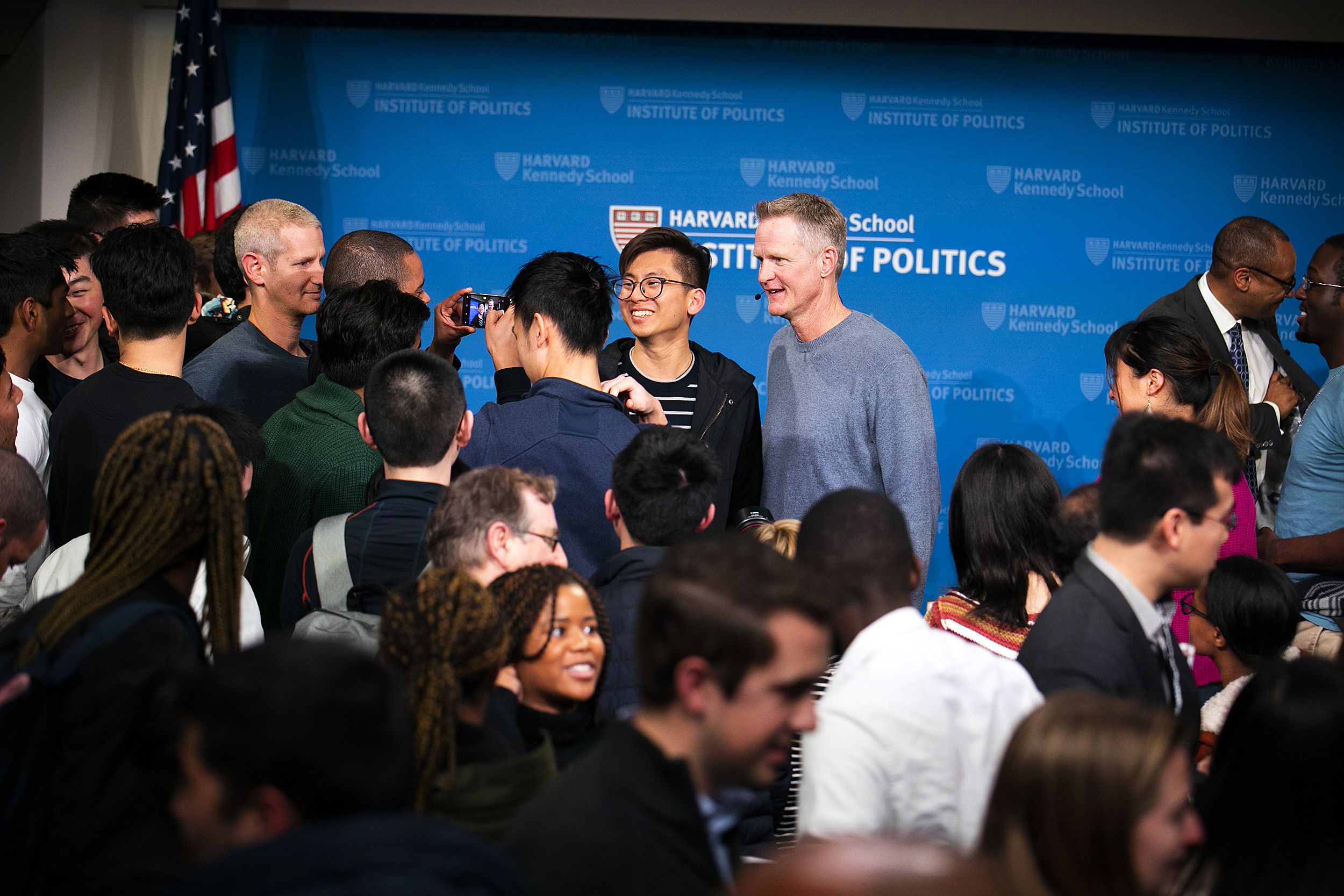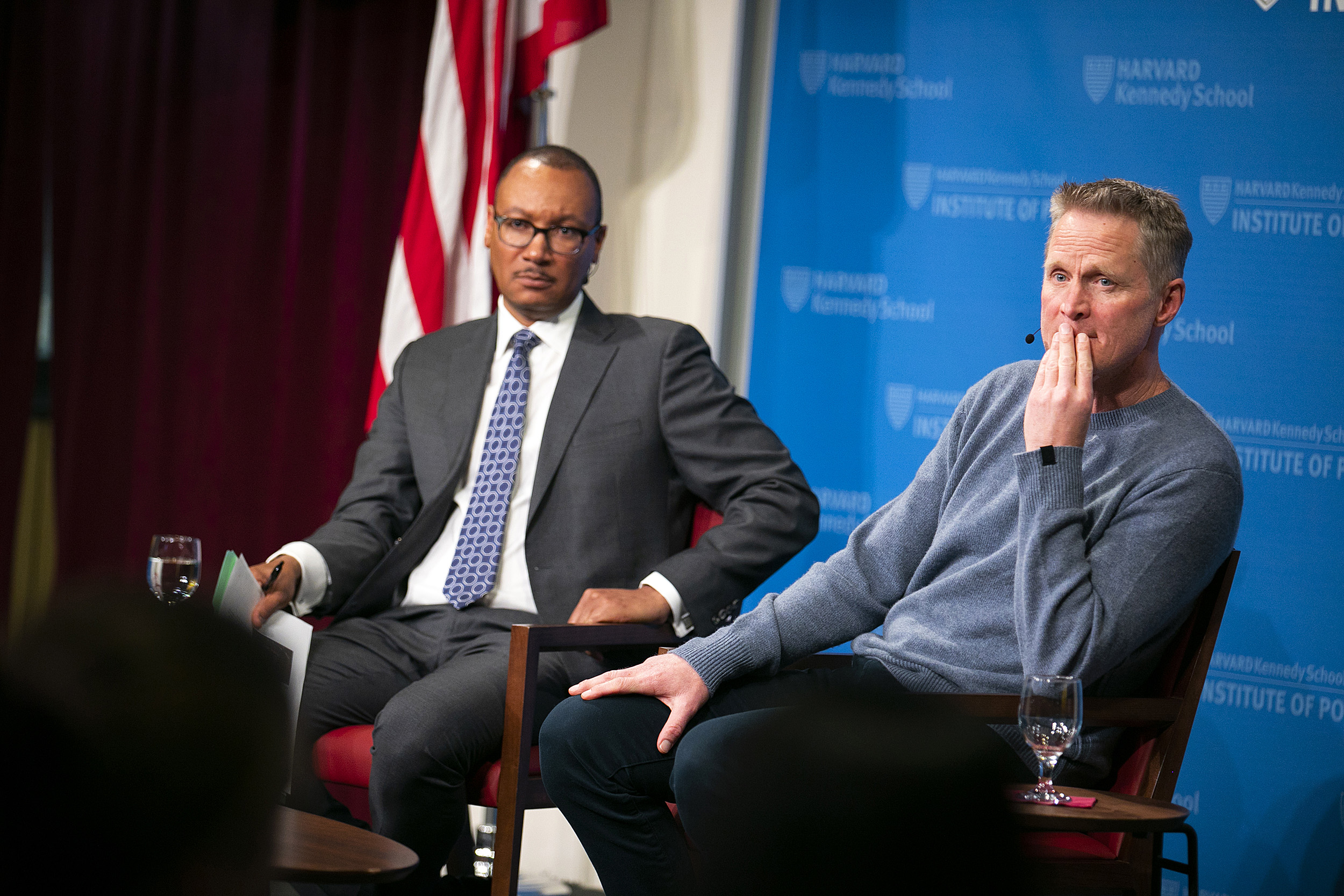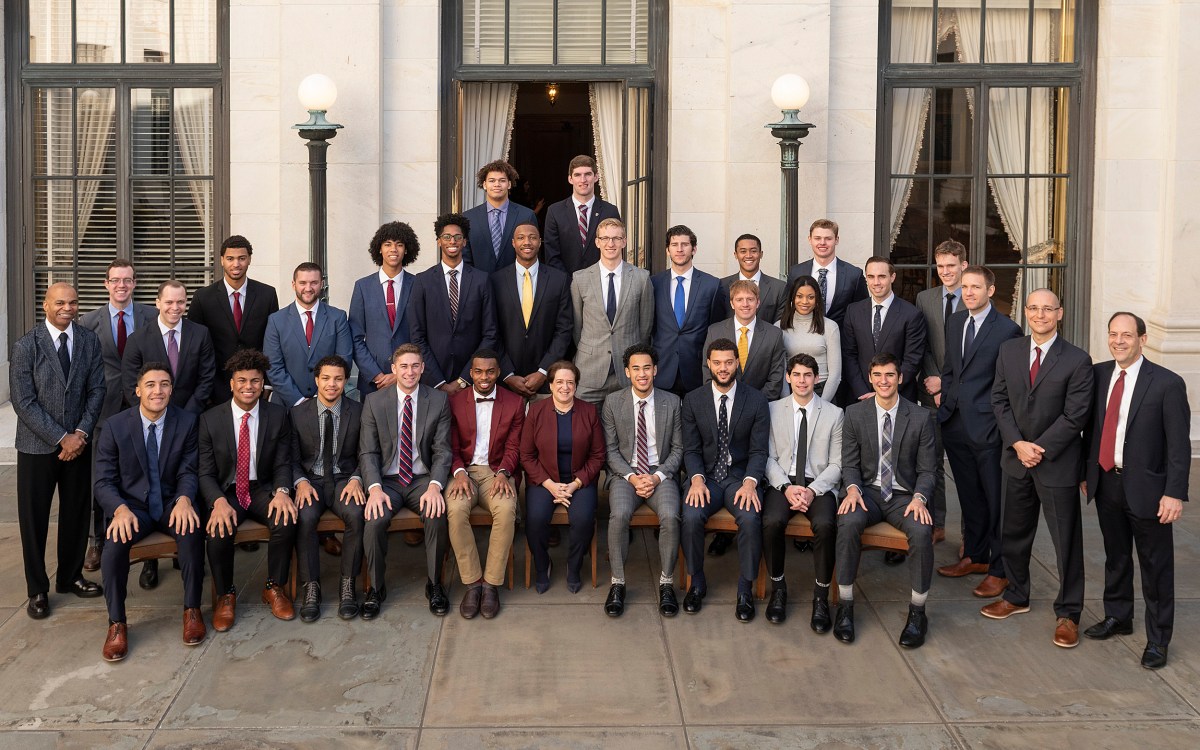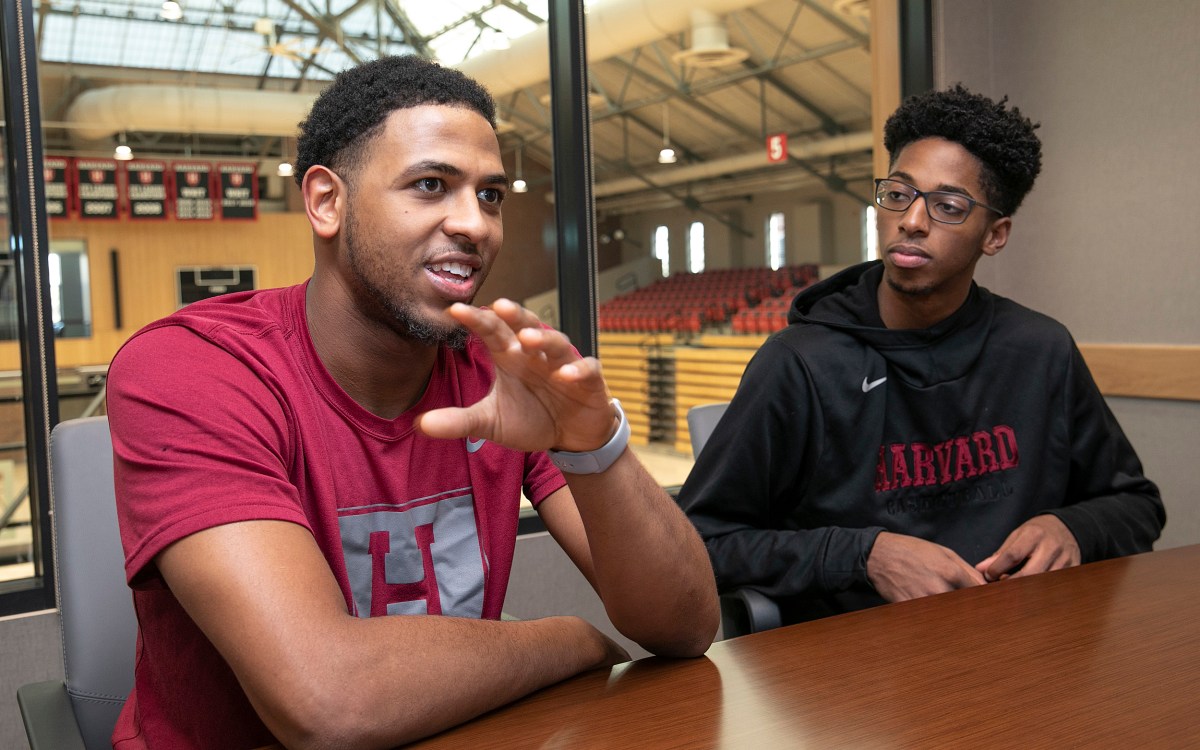
Steve Kerr (center) takes photos with students after his discussion at the Kennedy School.
Photos by Stephanie Mitchell/Harvard Staff Photographer
Get your head in the game
NBA coach Steve Kerr visits the Kennedy School to talk both sports and personal politics
Steve Kerr isn’t just one of the winningest coaches in the NBA, he’s one of the more outspoken ones as well. Known for his progressive politics as well as his record-breaking tenure with the Golden State Warriors, Kerr covered both bases in a talk at the Kennedy School this week.
Tommie Shelby, Caldwell Titcomb Professor in the Department of African and African American Studies, moderated the talk before a capacity crowd. Shelby prompted Kerr to reach into his past for moments that shaped his worldview and his coaching style. A lifetime of international travel was central, said Kerr, who was born in Beirut, the son of UCLA professor and Middle East scholar Malcolm H. Kerr.
“My earliest memory was people visiting my parents all the time, so I’d always hear these discussions about peace in the Middle East. And I remember getting mad that they could watch the news, and I couldn’t watch the Lakers game,” he said. “One of the great benefits of living overseas was that I was exposed to many things outside of my own bubble. Sports only magnified that [in college] because I was playing with African American teammates. When you get to know someone that well, you can appreciate that they come from a different place than you.” This, he suggested, is a lesson that more people could stand to learn nowadays. “You only need to watch the impeachment hearings to see the divisions that exist.”
Shelby also asked Kerr about the trauma over the 1984 murder of his father, then the president of the American University of Beirut, by Lebanese militia members. “That was the beginning of the era we’re in now, where there is a constant level of [terrorist] threat, said Kerr, who was a college freshman at the time. “It shaped my whole life; the way I look at each day. The perspective it gave me was that family is everything, and that is the way I coach. The game itself is a basketball game — not that big a deal. And yet it is so fragile. Everything can be taken away just like that. So I try to remind guys to seize every opportunity … and to take the power they hold to make a difference in their communities.”
Steve Kerr (right) and Tommie Shelby field questions from the audience.

The experience, Kerr said, also led him to a commitment to push for gun control. “That has to do with losing my dad to gun violence, and also with growing up watching school shootings, seeing what the families are dealing with. That is a very passionate issue for me.”
When Shelby opened the floor to audience questions, Kerr made clear his own feelings about the importance of open dialogue. One person referenced conservative commentator Laura Ingraham, who famously rebuked LeBron James for expressing opinions on race, politics, and President Trump during a 2018 ESPN interview, saying that he should “shut up and dribble.” Kerr was asked: Where do athletes fit into political discourse? “They fit in anywhere they want,” he replied. “As American citizens they have the right to speak.”
The most emotional moment came when a first-year student, who said she was a lifelong Kobe Bryant fan, asked for memories of the Los Angeles Lakers great who’d died over the weekend. Kerr said that he’d known Bryant in three capacities: competing against him late in Kerr’s playing career; covering Bryant as a broadcaster; and finally coaching against him.
“The most profound thing for me to watch was his transformation,” he recalled. “In his rookie season, he was this brash kid who imitated Michael Jordan; he even talked like him. He was so brash and so confident that you’d think he had no self-awareness. But within two years he was the most dominant player in the game. In the beginning people were mocking him, but he kept taking steps that only he knew he was going to reach.”
A similar transformation, he said, took place in Bryant after he left the game. “A lot of people thought he’d struggle, but he transitioned beautifully. I saw images of him often with his daughter, looking so much at ease. To see a family devastated like that is tough.”
Many of Kerr’s reflections were sober and serious. Some were less so. One audience member asked which NBA star, Steph Curry or Clay Johnson, would win in a game of the basketball-shooting competition H.O.R.S.E. Responded Kerr, “The only thing I can tell you is that it would take forever.”






